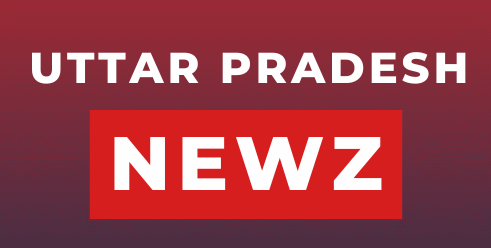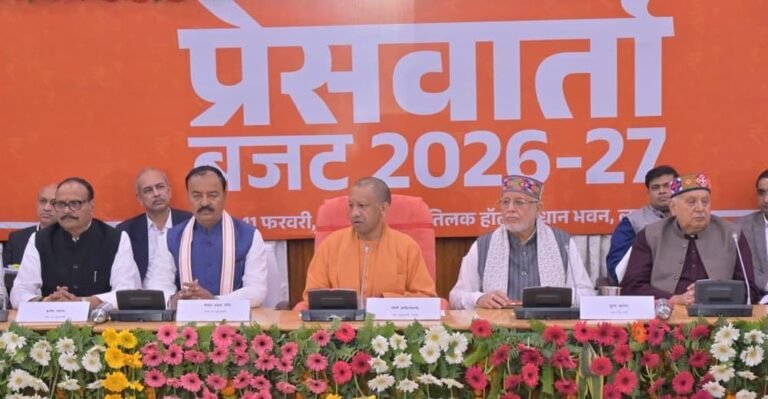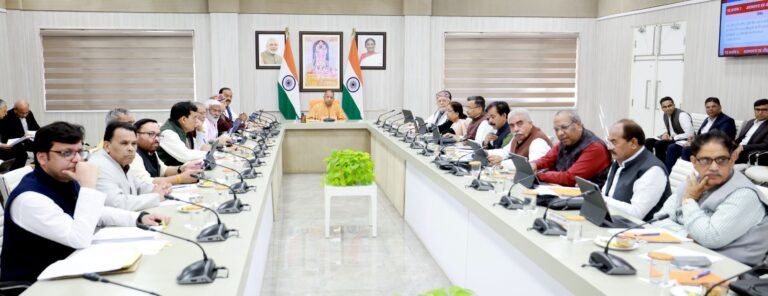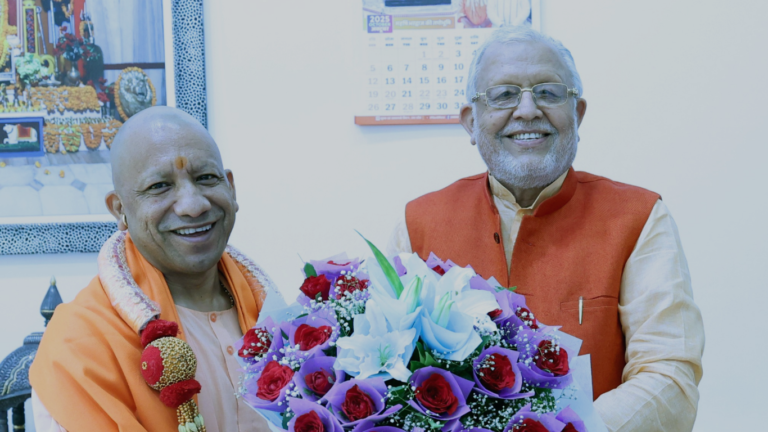
Lucknow, 9 September, 2025 – In the heated world of Uttar Pradesh politics, where every vote counts like gold, Akhilesh Yadav’s clever PDA strategy has been a game-changer. PDA stands for Pichda (backward classes), Dalit, and Alpsankhyak (minorities), a simple yet powerful idea to bring these groups together against the ruling BJP. It worked wonders in the 2024 Lok Sabha elections, helping the Samajwadi Party (SP) grab 37 seats and shake up the BJP’s hold. But now, with Bahujan Samaj Party (BSP) chief Mayawati showing signs of a comeback, things could get tricky for Akhilesh. An energized BSP, especially under Mayawati’s firm grip, might split the very votes Akhilesh needs most, turning his winning formula into a headache ahead of the 2027 assembly polls.
Let’s step back a bit. Akhilesh launched PDA back in 2023 as a way to move beyond the old Muslim-Yadav base of the SP. He wanted to pull in Dalits and other backward castes who felt left out. It was smart social engineering. In the 2024 polls, Dalit support, especially from non-Jatav communities, flowed to SP candidates, breaking old patterns. Akhilesh even positioned himself as an “Ambedkarite,” visiting Dalit areas and picking leaders from diverse castes. He also tried to pull upper caste by making Brahmin veteran Mata Prasad Pandey as opposition leader in the assembly. This outreach paid off, with SP surging in places like Firozabad, a traditional BSP stronghold. Analysts say PDA helped the opposition INDIA bloc dent the BJP’s numbers in UP.
But Mayawati has never been a fan of this development. Right from the start, she called PDA “just rhyming words” with no real substance for Dalits. As the founder of BSP, which was built on Dalit empowerment under the legacy of Kanshi Ram and B.R. Ambedkar, Mayawati sees herself as the true guardian of Dalit interests. BSP once ruled UP four times, peaking in 2007 with a rainbow coalition of Dalits, Brahmins, and others. But since then, it’s been a downhill slide. In 2024, BSP won zero Lok Sabha seats, and its vote share dipped below 10%. Mayawati’s solo run, ditching alliances, hurt the party bad.
Fast forward to 2025, and there’s a buzz that Mayawati is waking up. Just two days ago, she warned of a “political conspiracy” in UP and rallied her workers, promising a clear roadmap for the future. The big news? BSP is set to hold a massive rally on October 9 in Lucknow, marking the death anniversary of Kanshi Ram. Party insiders say this isn’t just a remembrance – it’s a launchpad to revive BSP’s fortunes for 2027. Mayawati plans to address thousands of workers there, focusing on grassroots rebuilding. It could boost the morale of BSP workers ahead of crucial assembly election in 2027.
Why does this matter for Akhilesh? Simple: Dalits are the key to PDA. They make up about 21% of UP’s population, and SP borrowed heavily from BSP’s Dalit voters in 2024. If Mayawati gets active, she could pull those votes back. Already, there’s a fierce race for Dalit loyalty. Akhilesh has been touring Dalit pockets, pitching PDA as the way to beat BJP. But Mayawati counters by slamming the INDIA bloc as having “no future” and positioning BSP as the only real alternative to BJP. In February, she clashed with Rahul Gandhi over alliances, refusing to join hands and accusing others of fake Ambedkar politics.
Mayawati’s moves go beyond just talk. In April, BSP announced plans to revive its “brotherhood” committees to reconnect with Other Backward Classes (OBCs), a big part of Akhilesh’s Pichda base. This old tactic from Kanshi Ram’s days aimed at building ties between Dalits and OBCs without formal alliances. If it works, it could chip away at PDA’s unity. Plus, Mayawati has reaffirmed a go-solo strategy for 2027, denying any BJP ties and vowing to fight alone. She’s also defended her nephew Akash Anand’s role in the party, signaling internal stability after some ups and downs.
Experts see this as a direct threat. “BSP’s revival could fragment the anti-BJP vote,” says a political analyst in The Indian Express. In 2024 bypolls, Mayawati’s surprise decision to contest all nine seats was seen as a jab at Akhilesh’s PDA. She reworked her math to counter SP’s gains among Dalits. Now, with regular meetings to boost membership, BSP is facing rivals like SP and Azad Samaj Party wooing Dalits. Mayawati’s recent jabs at toxic politics of caste and religion and the 130th Constitutional Amendment Bill as anti-democracy show she’s staying relevant on national issues too.
For Akhilesh, this is no small worry. PDA’s strength lies in its broad appeal, but a resurgent BSP could make Dalits choose sides. Social media is already buzzing with posts questioning PDA’s unity, like incidents of caste tensions that BSP supporters blame on SP. While Akhilesh and Mayawati have kept lines open in the past – exchanging pleasantries amid alliance rumors – their rivalry runs deep. Mayawati snubbed PDA outright, saying it won’t deliver for Dalits.
Looking ahead, the October 9 rally could be a turning point. If it draws crowds and energizes workers, BSP might reclaim some ground. Akhilesh’s team knows this; they’ve ramped up Dalit outreach to counter it. But in UP’s cutthroat politics, where Yogi Adityanath’s BJP is watching from the sidelines, any split in opposition votes plays into their hands. As one observer put it, “Mayawati’s activity could turn PDA from a formula for victory into one for division.”
Will Mayawati pull it off? Her party has struggled with her reluctance for stable alliances, unlike her mentor Kanshi Ram. Yet, at 69, she’s not giving up. For Akhilesh, 2027 is his big shot to become chief minister again. An active BSP might just make that dream tougher. As the rally approaches, all eyes are on Lucknow – and on whether PDA can hold strong or start cracking.



